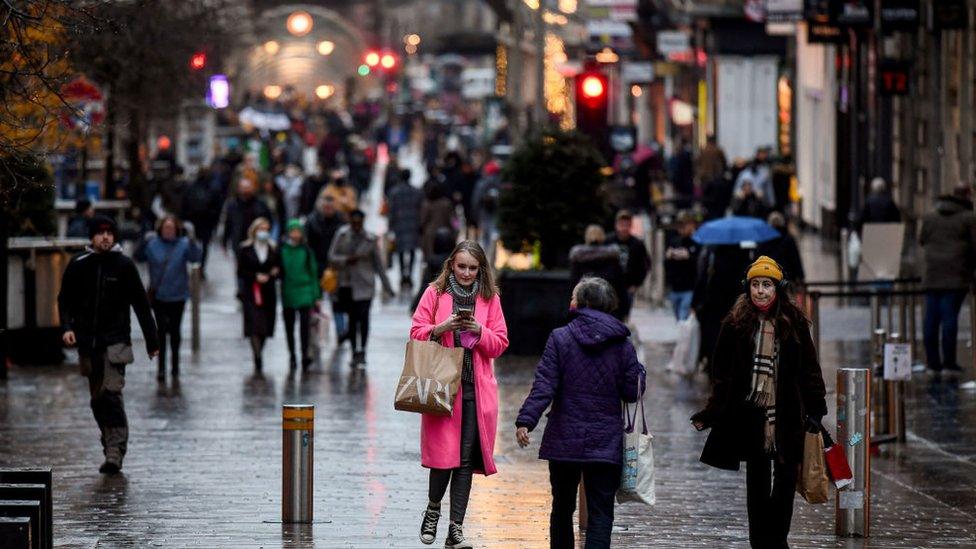Covid-19: Tougher Covid rules begin for millions in UK
- Published
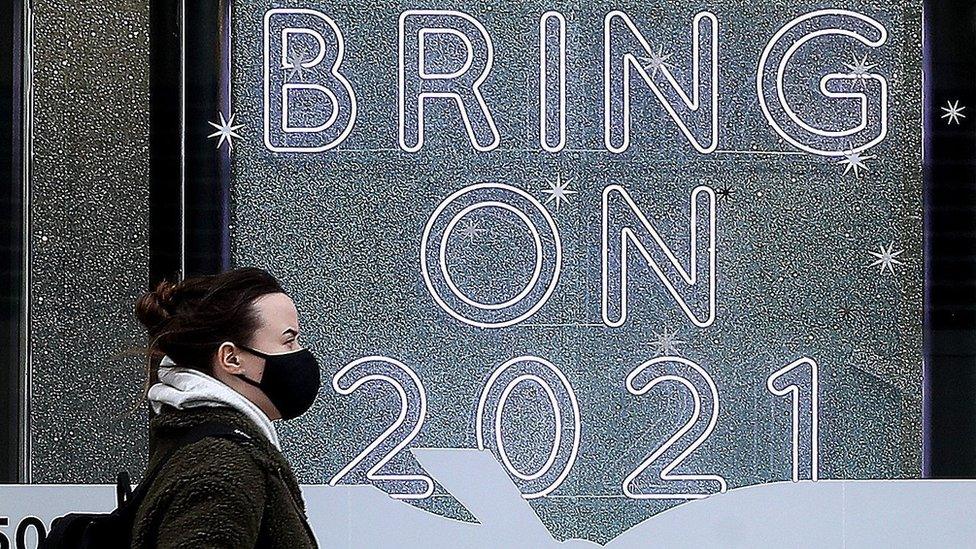
Harsher Covid restrictions now apply to millions more people, as rule changes come into force across the UK.
Around six million people in east and south-east England have gone into tier four, England's highest Covid level - which includes a "stay at home" order.
Lockdowns have also started in Scotland and Northern Ireland, and measures have been reimposed in Wales after being eased for Christmas.
It comes after official UK coronavirus deaths passed 70,000 on Christmas Day.
The toughest measures - which mean the closure of all non-essential shops, as well as hairdressers, swimming pools and gyms - now apply to around 24 million people in England, more than 40% of the population.
Meanwhile, work has continued in Kent to clear the backlog of lorries formed after France closed the border to the UK due to the discovery of a fast-spreading variant of coronavirus.
The border has reopened but drivers must provide a negative Covid test before making the crossing, with the Department for Transport warning there were "still long queues" on Saturday evening, external.
Transport Secretary Grant Shapps said more than 15,000 tests had now been carried out on lorry drivers, with 36 positive results.
Prof Devi Sridhar, chairwoman of global public health at the University of Edinburgh, told the BBC she believed all of England was likely to soon be in tier four.
"I think that's where it's heading and it's better to be honest with people so they can plan the next few weeks to understand what might be coming," she said, adding: "To really keep a handle on these numbers, you need to move early."
The whole of Sussex, Oxfordshire, Suffolk, Norfolk and Cambridgeshire, as well Essex, Waverley in Surrey, and all of Hampshire with the exception of the New Forest, are now in tier four.
Bristol, Gloucestershire, Somerset, Swindon, the Isle of Wight, the New Forest and Northamptonshire, as well as Cheshire and Warrington, have all moved up to tier three. Meanwhile, Cornwall and Herefordshire have moved from tier one to tier two.
Tier four restrictions mean shops in many town and city centres have been closed for the first time in decades on Boxing Day, when there are usually sales.
Even some retailers deemed "essential" - such as Asda - have opted not to open.
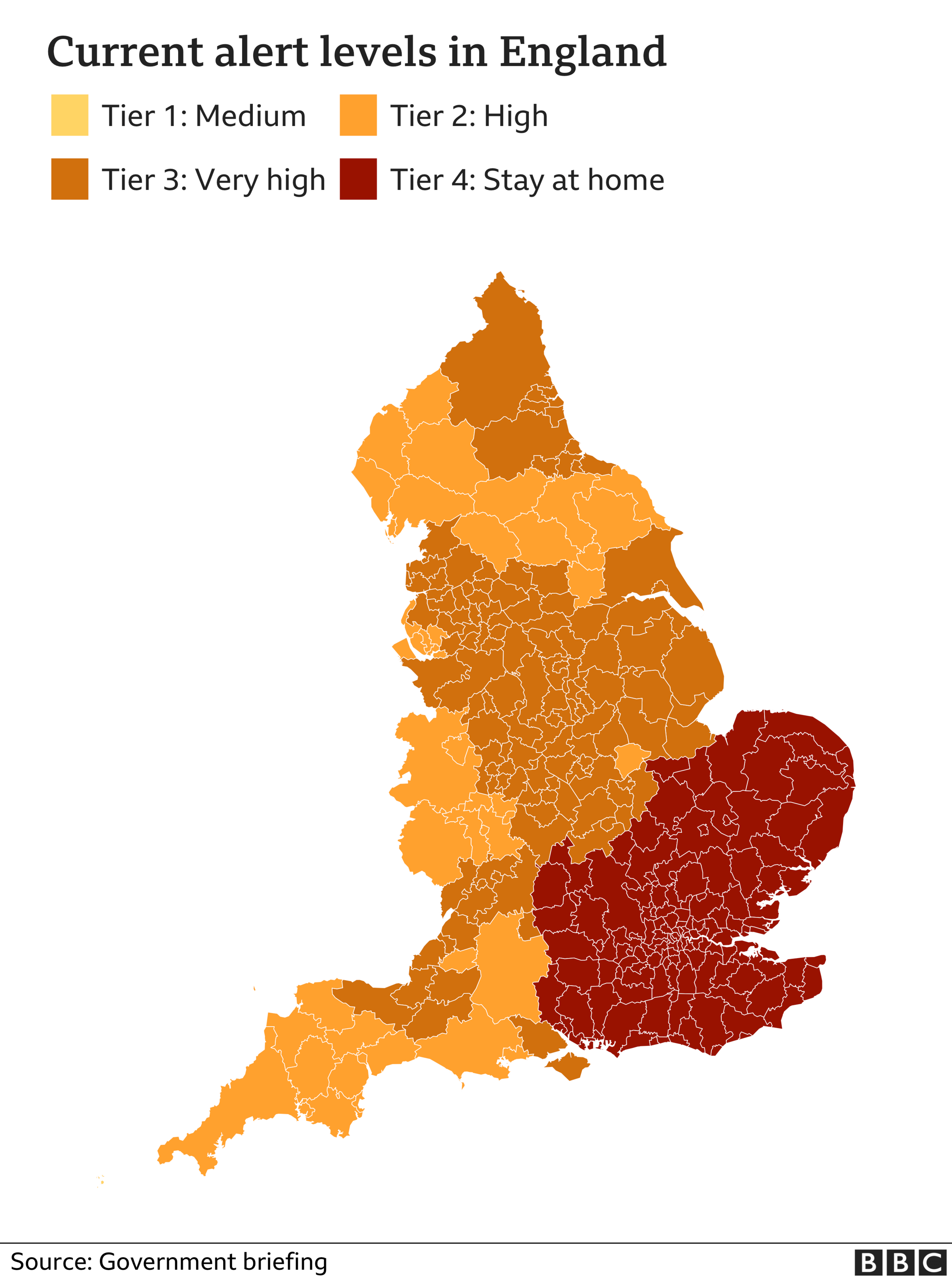

In Scotland - which operates under a different tier system - level four lockdown measures have come into force across the mainland for three weeks. Orkney, Shetland, the Western Isles and other island communities are in level three.
And in Northern Ireland, a six-week lockdown has begun. The first week, until 2 January, has stricter restrictions, including essential shops closing at 20:00 GMT and no sport.
For the first week, people are also banned from meeting indoors or outdoors between 20:00 and 06:00.
NI police have legally-enforceable powers to tell anyone out during those hours to return home, unless they have a "reasonable excuse", such as being a key worker or having caring responsibilities.
On Saturday, the UK government announced a further 34,693 people had tested positive for Covid-19 in England and Scotland, while a further 210 people had died within 28 days of a positive test in England.
Due to service changes over the holiday period deaths in Scotland and deaths and cases in Wales and Northern Ireland will reported at a later date, the government said, external.

SOCIAL DISTANCING: What are the rules now?
SUPPORT BUBBLES: What are they and who can be in yours?
FACE MASKS: When do I need to wear one?
TESTING: How do I get a virus test?

In Europe, France, Sweden, Spain and Switzerland have reported cases of the more contagious coronavirus variant identified in the UK.
France has confirmed one case, while Switzerland has identified three, two of which are British citizens currently in the country, while Spanish officials said there had been three cases of the variant linked to a man who had flown from the UK on Thursday.
In Sweden the country's health agency said a traveller was ill with the strain there but was self-isolating.
The appearance of the new coronavirus variant in England triggered travel curbs with dozens of countries.
What a pandemic Christmas looked like around the world
On Christmas Day, the Queen delivered a heartfelt message of hope to the country in her TV address, praising the "indomitable spirit" of those who have risen "magnificently" to the challenges of the pandemic.
She said what many people want "for Christmas is a simple hug or a squeeze of the hand" and that "even on the darkest nights there is hope in the new dawn".
The Archbishop of Canterbury used his Christmas sermon to praise schools and hospitals for bringing hope during the coronavirus crisis.

Related topics
- Published25 December 2020
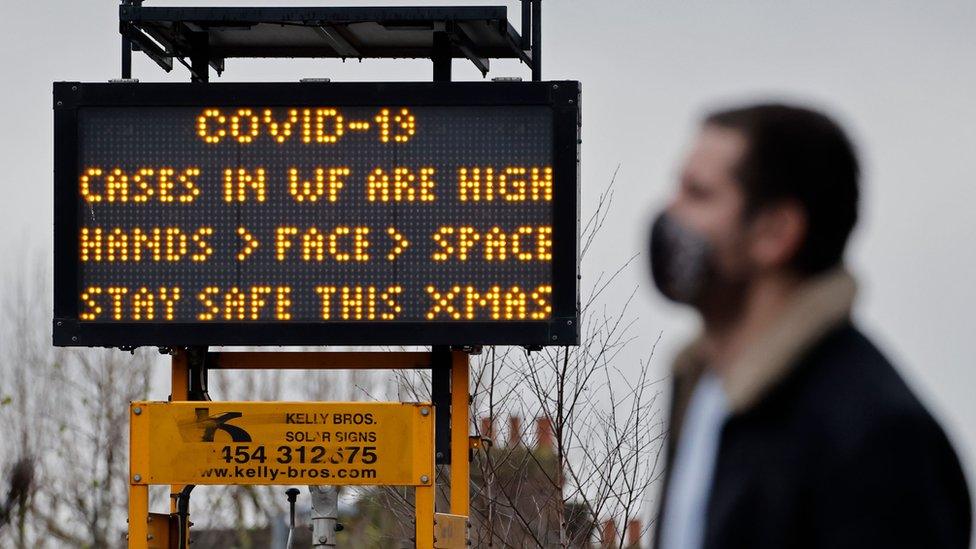
- Published23 December 2020
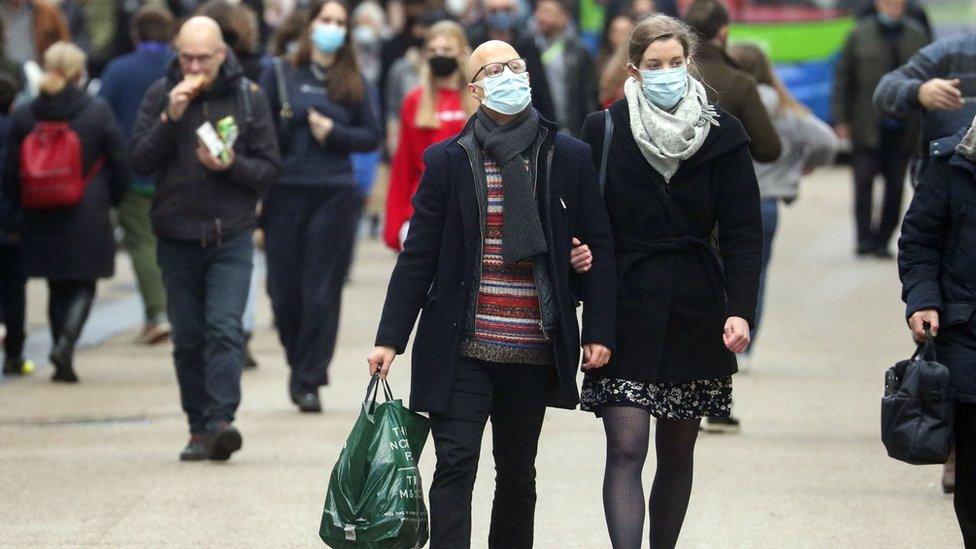
- Published23 December 2020

- Published22 December 2020
